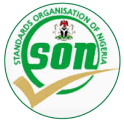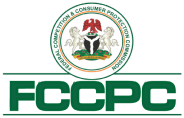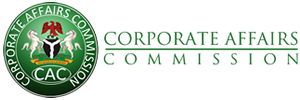The Director-General, NAFDAC Prof. Mojisola Christianah Adeyeye at a scheduled side event met with the UK Food Standard Agency (FSA) during the recently concluded workshop on Nigeria-UK Enhanced Trade & Investment Partnership (ETIP) held in London. The meeting was hosted under the UK-Developing Country Trading Scheme (UK-DCTS) with the Nigerian delegation led by Federal Ministry of Industry, Trade, & Investment (FMITI).
The Director-General represented by Dr. Abimbola Adegboye, Director, Ports Inspection Directorate and Head of Office of Trade and International Relations engaged the FSA on the unabated incidences of reject of Nigerian food products exported to the United Kingdom, non-notifications on such rejects and non-engagement of NAFDAC on the matter and the need for mutual recognition of electronic certification of both government agencies of export certification, among others.
This is another step-in addition to other steps already taken by the DG toward changing the status and narrative of Nigerian food products in the international market. The steps already taken include:
- Bringing into focus the export oversight functions of the agency by the establishment of office of Trade & International Relations in her office about two years ago.
- Engagement with other
tradeChief Executives of trade facilitation-related MDAs at round-table conferences in respect of streamlining Nigerian export. - Advocacy visits and engagements with representatives of trading partners in Nigeria such as EU Delegation to Nigeria, Indonesia, China, Denmark, Hungary, etc., and development partners such as FAO, GIZ, etc.
- Forming part of Nigerian trade delegations to key and strategic trading partners and engaging with the Trade Departments of the Nigerian Embassy e.g., Nigerian High Commission to the UK, etc.
- Engagement with operators and regulators in the export trade facilitation such as ANCLA, Shippers Council, Nigerian Customs Service, Nigerian Export Promotion Council, Nigerian Investment Promotion Council, Central Bank of Nigeria, Standards Organization of Nigeria, Federal Ministry of Industry, Trade, and Investment. And
- Strengthening the regulatory framework on export within the Agency.
The challenge bedeviling the export process of NAFDAC regulated products especially, assuring safety and quality status of food exports in Nigeria has been traced to:
- Non-compliance with advisory guidelines established by NAFDAC to encourage participatory exports. Almost all exported food products are processed without the statutory testing by NAFDAC. Therefore, it is not surprising that all the items exported without NAFDAC quality control and safety tests are rejected.
- Non-utilization of hitherto free laboratory testing by NAFDAC for export samples coupled with the connivance of unscrupulous agents.
- Exclusion of NAFDAC’s requirements for its regulated products in the mandatory pre-shipment inspection in the National Export Supervision Scheme (NESS) as administered by the FGN appointed Pre-shipment Inspection Agents (PIAs).
- Unwillingness of exporters to comply with minimal sanitary and phytosanitary measures required for exports to countries with stringent market access.
- Poor packaging, disregard for importation requirements of trading partners countries
- Penchant for sourcing from open markets for exports without any form of minimal safety or quality specifications
- Unwillingness to invest in pre-export activities that help to ensure sustainable export.
- Disinformation on the roles of NAFDAC in the pre-shipment inspection and verification exercise of container stuffing.
To ratify all these and as an outcome of NAFDAC recent meeting with FSA, the agency is commencing on six regulatory-measure approaches to address the situation. These include:
- Immediate inclusion and implementation, as a matter of urgency, of NAFDAC Good Manufacturing Practices (GMP), Good Hygienic Practices (GHP) and Laboratory testings (e.g., mycotoxin, pesticide residue, and heavy metals) certification for the regulated products – food, drug, and others by the National Export Supervision Scheme (NESS) as administered by the FGN appointed Pre-shipment Inspection Agents (PIAs).
- Inclusion of NAFDAC in the CBN Export Proceed (NXP) form processing. I am engaging very soon with the Comptroller General of Customs as the new administrator of the Nigeria Single Window Trade portal to facilitate this.
I had earlier engaged with CBN (Trade and Exchange Division) and Federal Ministry of Finance (Home Finance) on this same matter.
- Strengthening in-country regulatory infrastructures on export such as listed below:
- Development and introduction of NAFDAC Regulations on Export 2022. The regulation is already hosted on NAFDAC website with e-copy sent to exporters, trade associations and professional bodies for their inputs and comments within the next 60 days that started from 11th October 2023.
- Registration by NAFDAC of all exporters of its Regulated Products. This is in addition to the general registration by Nigerian Exports Promotion Council (NEPC).
- NAFDAC’s continuation of its Awareness and Sensitization meetings with the export trade operators on its reviewed guidelines on export of NAFDAC regulated products. This is also on NAFDAC website for compliance.
- Closer working relationship with NAFDAC’s sister Agencies, and major trading partners on safety and quality of Nigerian exports, starting with UK and EU.
- Evidence-based national monitoring of Pesticide Residues as part of continuous engagement with the UK FSA, and as a road map for the lifting of the ban on dried beans by first quarter of 2024.
- Continuous engagements, internally with CBN, FMOF, NCS, NAQS and, externally with European Union (EU). This had started yielding positive results with EU reduction of Nigeria melon inspection from 100% to 50%.
In the interim, I implore all Nigerian exporters trading in NAFDAC regulated products to obtain necessary certifications for processing of their products.
These could be processed, semi-processed, food-destined for further processing or bulk food such as cocoa, sesame seed, groundnut, melon or grains (e.g., beans, indigenous rice, etc.) tea materials, ogbonno and mellon; drugs, cosmetics, chemicals, agro-chemicals, beverages, fruit juices, and medical devices. All exporters should join hands with NAFDAC and contact the Agency for more information on Single Window Trade (SWT) portal: www.trade.gov.ng.
They must leave ample time for processing unless their product is already registered (for destination country), the facility already has cGMP certification, and the client has been a regular exporter with good records with NAFDAC. They are all also enjoined to contact NAFDAC website to read up and comply to the stated steps on the guidelines. To NAFDAC’s credit, for hundreds of products whose export process passed through NAFDAC, none has suffered rejection to date.
Going forward, to stem the worsening situation, no patriot should export any NAFDAC Regulated product without it passing through and being certified of its safety and quality status including full compliance with the destination country government requirements. This is also very important to avert colossal economic loss resulting from the rejection of non-compliant exports by the trading partners.
You may also contact NAFDAC Zonal and State offices nationwide, the Export Division at NAFDAC PID NAHCO Office or Office of Trade and International Relations at otir@nafdac.gov.ng to be properly guided.
Thank you for your attention.
NAFDAC………safeguarding the health of the Nation!!!
Director General






